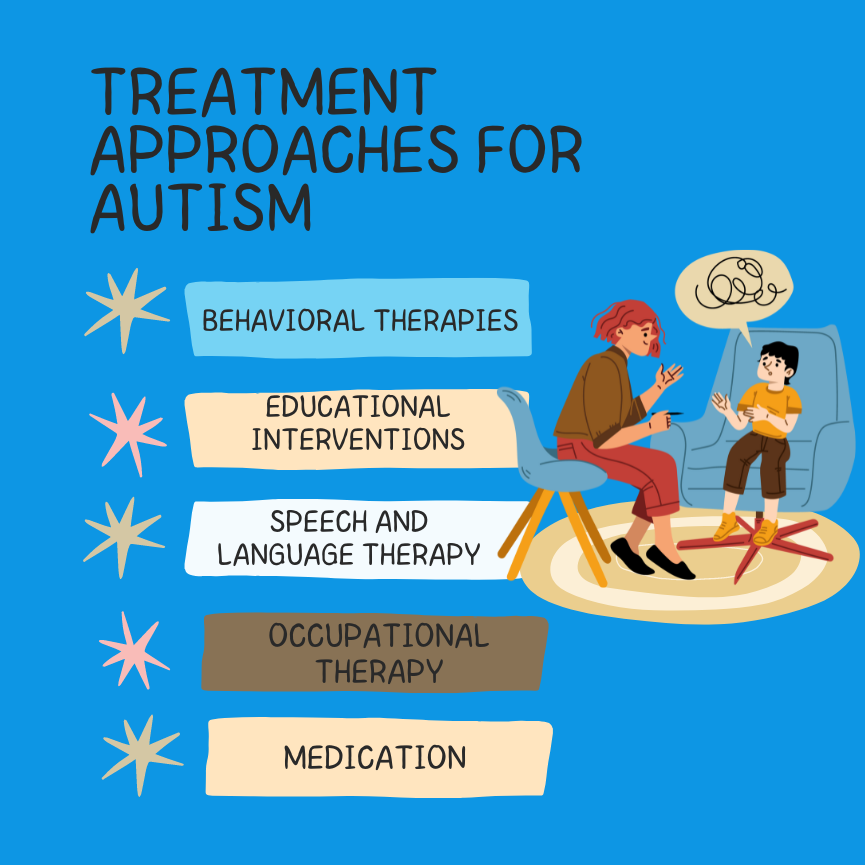
- May 09, 2024
- 128 Views
- 0 Comments
Effective Treatment Approaches For Autism
Understanding Autism: Exploring Treatment Approaches and the Quest for a Cure
Autism spectrum disorder (ASD) is a complex neurodevelopmental condition that affects individuals in various ways, making it challenging to provide a one-size-fits-all answer to the question of its curability. In recent years, there has been a surge of interest in understanding the potential for treating and even curing autism. This article aims to delve into the multifaceted nature of autism, explore existing treatment approaches, and discuss the ongoing quest for a cure.
Defining Autism Spectrum Disorder
Autism is a spectrum disorder, meaning it manifests differently in each individual. The core features of ASD include challenges in social communication and restricted, repetitive behaviors. Some individuals with autism may have exceptional abilities in certain areas, such as mathematics or music, while others may face significant cognitive and developmental delays.
Treatment Approaches
While there is no known cure for autism, various treatment approaches for autism aim to improve the quality of life for individuals on the spectrum and help them develop essential skills. It's crucial to recognize that what works for one person may not be as effective for another. The following are some of the commonly employed treatment strategies:
Behavioral Therapies:
Applied Behavior Analysis (ABA) is widely used to reinforce positive behaviors and reduce unwanted ones.
Cognitive Behavioral Therapy (CBT) helps individuals manage anxiety, improve social skills, and cope with sensory sensitivities.
Educational Interventions:
Specialized education programs, often involving individualized education plans (IEPs), focus on addressing the unique learning needs of children with autism.
Inclusion programs promote social interaction and skill development within mainstream educational settings.
Speech and Language Therapy:
Many individuals with autism experience challenges in communication. Speech and language therapy can help improve verbal and nonverbal communication skills.
Occupational Therapy:
This therapy focuses on developing everyday skills, such as self-care and fine motor skills, to enhance independence.
Medication:
Certain medications may be prescribed to manage specific symptoms associated with autism, such as anxiety, aggression, or hyperactivity.
The Quest for a Cure
The concept of a "cure" for autism is a topic of considerable debate within the scientific and autism communities. As of now, there is no universally accepted cure for autism, and professionals in the field often emphasize the importance of accepting and understanding neurodiversity.
Genetic and Biological Research:
Scientists are actively researching the genetic and biological factors that contribute to autism. Understanding these factors could lead to more targeted and personalized treatments.
Stem Cell Therapy:
Some researchers are exploring the potential of stem cell therapy to repair or replace damaged cells in the brain, with the hope of alleviating symptoms associated with autism.
Early Intervention:
Early diagnosis and intervention are crucial in managing autism. Research suggests that intensive early intervention, such as behavioral therapy, can significantly improve outcomes for individuals with autism.
Neurofeedback and Brain Stimulation:
Emerging technologies like neurofeedback and transcranial magnetic stimulation (TMS) are being investigated for their potential in modifying neural activity and improve cognitive function in individuals with autism.
Challenges and Ethical Considerations
While the pursuit of a cure for autism is driven by a desire to improve the lives of individuals on the spectrum, it raises ethical questions and concerns. The neurodiversity movement advocates for accepting and celebrating the diversity of neurological differences, viewing autism not as a disease to be cured but as a part of human variation.
Autistic Advocacy:
Many individuals on the autism spectrum and their families emphasize the importance of accepting and embracing neurodiversity. Advocacy groups work to challenge stigmas and promote a more inclusive society.
Ethical Considerations in Research:
Researchers face ethical challenges in exploring potential treatments and cures for autism, balancing the desire for progress with the need to respect the autonomy and identity of individuals with autism.
In conclusion, the question of whether autism is curable is complex and multifaceted. While there is no cure for autism at present, ongoing research and advancements in various fields offer hope for improved treatments and interventions. It is crucial to approach the topic with sensitivity, recognizing the diversity of experiences within the autism spectrum and respecting the autonomy and agency of individuals with autism. Ultimately, the focus should be on promoting understanding, acceptance, and support for the unique strengths and challenges faced by individuals with autism.



Comments - 0 comments till now